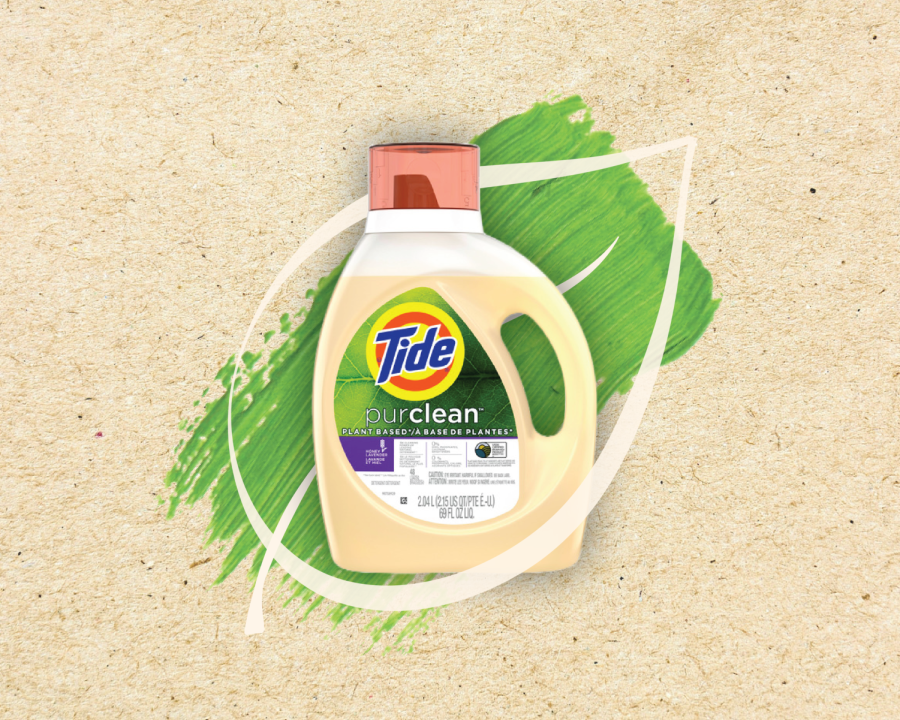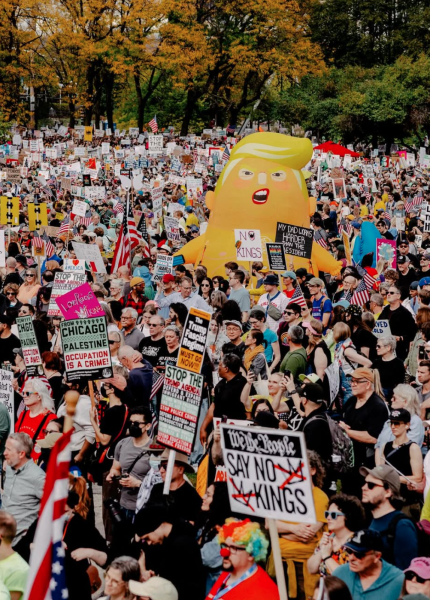Avoiding the Murky Waters of Greenwashing
It’s not easy being green.
With Climate Week NYC happening just a few weeks ago, it is the perfect time to reflect on our relationship with the environment as consumers. As the condition of our planet has worsened over the past few decades, thanks in large part to the unsustainable production tactics of massive corporations, consumers have been looking to purchase more eco-friendly, or “green,” products. In fact, 85% of people across a span of 17 countries “indicate that they have shifted their purchase behavior towards being more sustainable in the past five years.”
There are a host of tactics companies implement to make their products green, such as sourcing their materials more ethically and sustainably or creating their packaging out of recycled materials. However, what a lot of companies end up doing is greenwashing. It is our responsibility as consumers to do our own research to avoid supporting these greenwashed companies.
Greenwashing is when companies “invest more time and money on marketing their products or brand as ‘green’ rather than actually doing the hard work to ensure that it is sustainable,” according to medium.com. Companies partake in greenwashing by either being vague about what they are doing to make their products more eco-friendly, or by lying outright. In a report by the Green Business Bureau, “in 42% of cases, green claims were exaggerated, false or deceptive.”
Greenwashing is not only misleading, but it undermines the work of truly environmentally ethical companies who are sincerely trying to limit the harm they cause this planet.
Let’s take a closer look at laundry detergents for a concrete example of greenwashing in action. In 2016, Tide launched their plant-based PurClean detergent. However, if you read the fine print, it is only made up of 75% plant-based ingredients. That other quarter of ingredients? They are cleaning aids derived from petroleum (which is clearly a non-sustainable resource), and though it only makes up a quarter of the solvent, those “cleaning aids are the most potent of ingredients used in the detergent,” according to a class-action suit filed against Tide’s parent company, Procter & Gamble.
Compare this to a brand like Ecos. Ecos has been manufacturing wholly plant-based and vegan detergents since the 1990s, and the company has received awards from important organizations such as the Environmental Protection Agency. If a brand like Ecos is so deeply committed to producing environmentally conscious products, and Tide’s PurClean is so much shallower and money-hungry in comparison, then why does it even matter that Tide is greenwashing?
It matters because, even though Tide is the inferior detergent when it comes to sustainability, they have something that Ecos doesn’t: brand recognition. On Amazon’s list of best-selling detergents, Tide dominates; Tide products make up seven out of the top 10 list. According to the Global Banking & Finance Review, “71% of consumers said it was very or somewhat important that they recognize a brand before they make a purchase.” If Tide is the best-selling brand, then consumers are far more likely to recognize it and buy it compared to the lesser-known, if more authentic, Ecos. Tide’s PurClean is a perfect example of greenwashing because Tide is using its status as an industry giant to dwarf the competition and sell consumers a product preaching phony planetary promises.
But is greenwashing the only answer in our capitalist, profit-driven world? I don’t think so. Even though there may seem to be a fundamental disharmony between capitalism and ethical environmental practices, the very existence of companies like Ecos proves that there is a market for more sincere products, even if they are overshadowed by their deceitful competitors. That being said, it is harder for those on a tight budget to shop sustainably, as the cost to produce sustainable products is “an average of 75 to 85 percent more expensive.”
Greenwashing is so frustrating because it is companies doing their best to convince consumers that they care about the environment without committing to any actual environmental action. Greenwashed companies know that their customers want and care about environmentally-friendly products, and they’ll do just enough to convey that illusion without actually following through. It is reminiscent of companies adding rainbows to their marketing during Pride month in an empty effort to demonstrate their LGBTQ+ allyship. Adding a leaf to a newly earth-toned logo and thinking that’s enough is hollow and condescending.
But it’s also frustrating that we fall for it.
In our defense, we are constantly inundated with advertising buzzwords in this capitalistic society of ours, and companies are always trying to convince us that they are the most “organic” or “plant-based” thing on the market. We’re busy consumers — we don’t always have time to research our brands before we buy them or look at the environmental ramifications of our purchases. And, sometimes, we like to do the bare minimum, too; it’s easier to reach for the detergent brand with the novel green leaf on the label that we’ve used our whole lives, than to do our homework and consider how we may be perpetuating harmful business practices.
As consumers, we need to be more aware of the prevalence of greenwashing and we need to call it out when we see it. If we really want to be environmentally ethical and conscious shoppers, we need to put in the time, because we clearly can’t trust companies to be on our side — or our planet’s.
Nicole Braun, FCRH ’24, is an English major from Saddle River, N.J.

Nicole Braun is a senior from Saddle River, N.J. and she is thrilled to be a member of Volume 105! Her love for writing and editing led her to begin writing...










































































































































































































